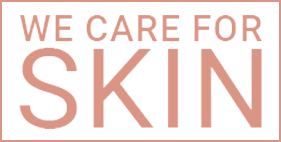Acne has always been the most common skin disorder that affects most people. In most cases, pimples have caused a decline in their quality of life, making them feel self-conscious, feel unattractive, and even less inclined to participate in social interactions. Recent studies have concluded that the effects of acne or pimples on individuals cause not only physical distress but emotional pain as well. This leads individuals to question whether there is ever a way out of it and if there is a way on how to remove pimples naturally and effectively.
Understanding Acne
Acne is an inflammatory skin disorder that develops when a hair follicle is clogged by the skin’s natural oils mixed with other substances on the skin, which allows the bacteria that are normally on the skin to proliferate and cause inflammation.
The ever-repeating question for most individuals who are experiencing the effects of acne is when or how to remove pimples naturally and permanently. Some individuals would witness their pimples go away on their own after their teen years; however, less lucky ones would experience it until adulthood. And the frustration lies in cases where acne will not just stay away.
Types of Pimples
-
Whiteheads: These are non-inflammatory types of acne that stay underneath the skin. The buildup beneath the skin produces a whitish bump.
-
Blackheads: These are also non-inflammatory types of acne that are “open,” reaching the surface of the skin. The dark appearance is caused by the reaction of the oxygen in the air, not because it is dirty. Both whiteheads and blackheads can lead to inflammatory acne if more oil builds up that can harbor bacteria.
-
Papules: These appear as small pink or red bumps on the skin that can be tender to touch. These types of pimples are more noticeable.
-
Pustules: Acne types that are filled with yellowish pus with red circles around the head.
-
Nodules: A more severe type of acne that are larger and deeper lesions. These are lodged beneath the skin and may cause scarring if left untreated.
-
Cysts: Another severe type of acne that is deep into the skin, may be pus-filled, and painful.
Possible Triggers and Causes
-
Hormones: In individuals experiencing puberty, the increase of androgens causes the sebaceous glands to enlarge and produce more sebum. For some people, they may only experience acne within their teen years and witness it go away after.
-
Genetics: Genetics play a big role in how your immune system reacts to P. acnes bacteria, which is the main cause of acne. Individuals may have hereditary tendencies to overproduce sebum, which clogs the pores.
-
Medications: Some drugs, including corticosteroids, lithium, anticonvulsants, and androgenic steroids, can cause acne as their side effects.
-
Other factors include pollution, lifestyle, vices, and diet.
Effective Ways to Keep Pimples Away
Pimples have always been one of the skin disorders that most people struggle with. Many times it can lead to misguided ways of treating it themselves and ultimately, leading to more breakouts and individuals questioning whether there are other ways to remove pimples naturally and effectively.
Natural Remedies
Natural remedies for treating pimples have attracted considerable attention because of their safety, and since most consumers are leaning towards products that are natural and organic.
-
Green tea. The use of green tea in treating acne was a part of a 2020 study, and it found that applying its extract on the skin can help reduce sebum production. Topical application of green tea extract has also been shown to significantly reduce inflammatory lesion counts compared to when taken orally. Green tea extract works to improve acne by controlling certain intracellular targets to inhibit P. acnes.
-
Lupeol. It is an active biomolecule that has potential medicinal properties, and is found in a variety of plants, in greens such as white cabbage, pepper, cucumber, and tomato, and in fruits such as olives, strawberries, mango, and grapes. A study showed that lupeol targeted most of the major pathogenic features of acne and reduced inflammation, thus suggesting that lupeol can help in treating acne.
-
Aloe vera. The gel present in every aloe vera leaf can be used topically to soothe skin burns or irritations. It also has antibacterial properties that explain why it is helpful in treating acne when applied to the skin generally. In a study, aloe vera combined with traditional anti-acne medication showed great results in treating mild to moderate acne.
Topicals
Given the natural remedies to help treat acne, there are also other options that you can try if you opt for a more clinical type of treatment for acne. One of the most common treatment methods that a dermatologist may suggest is a topical medication for mild to moderate cases. Some of these may include:
-
Retinoids. A derivative of vitamin A that plays a role in reducing inflammation, clogged pores, and regulating cell growth on the skin’s surface. The use of retinoids requires prescription from a doctor as it may induce unwanted side effects such as sun sensitivity, itching, or redness.
-
Antibiotics. These medications work by inhibiting and killing off bacteria on the skin and reduce the swelling of inflammatory acne. It works synergistically when combined with retinoids.
Antibiotics also require a prescription from a doctor and should be used as instructed to reduce the risk of developing antibiotic resistance.
Oral treatments
In moderate to more severe cases, oral medications may also be prescribed alongside topical treatments. These oral medications should always be taken with a dermatologist’s or doctor’s prescription as they can pose potential hazards when taken incorrectly.
A. Anti-androgen agents. These oral medications work by targeting overactive sebaceous glands and reducing their production rate. This leads to less sebum production, thus minimizing the chance for the pores to get clogged and infected.
B. Isotretinoin. Is used in treating acne vulgaris as it is able to reduce the size of pilosebaceous ducts, making it less favorable to colonization with P. acnes. The use of this oral medication requires both a prescription and regular monitoring by a healthcare provider for side effects. This drug is not advisable for pregnant women, lactating women, and those who are planning for conception. Some isotretinoin brands approved for use in the Philippines include the following.
-
Acnetrex. Acnetrex is an isotretinoin brand available in the Philippines and is prescribed by doctors to treat moderate to severe types of acne. It is available in 10 and 20 mg soft-gel capsules.
-
Isotron. Another isotretinoin brand is Isotron. It is available in 10 mg soft-gel capsules.
-
Isonoin. Similar to the first two brands, Isonoin is also available in 10 and 20 mg soft-gel capsules.
-
Oratane. Oratane is the only brand in this list to have 5 mg dosage available. They also have 10 and 20 mg, all in soft-gel capsule dosage form.
These drugs work by decreasing the production of sebum, or facial oil, through reducing the size of the sebaceous glands and blocking its activity.
C. Antioxidants and supplements. Antioxidants and supplements are also a mainstay in acne treatment. Vitamins C and E, and Zinc are some of the most commonly prescribed agents to help in acne treatment. They are also helpful in reducing acne marks and discoloration.
-
Skizin. Skizin combines vitamins C, E, Zinc, beta carotene and chromium to help in treating and preventing mild to moderate acne. Skizin does require a prescription and should be used under the supervision of a dermatologist or doctor.
Other Treatments
More acne treatments have made their way through clinical treatments and therapies, and some of these include:
-
Light Therapy. Phototherapy is a safe and easy option that can treat mild to moderate acne. Dermatologists are able to tell if you are a suitable candidate for this type of therapy and how many sessions it will take to see significant results.
-
Chemical Peel. This method uses chemical solutions such as salicylic acid, glycolic acid, or retinoic acid to peel off the top layer of the skin, for healthier skin layers to resurface.
Myths About Acne
Frequent Face Washing. It is believed by many that washing the face too often can help clear up acne. Unfortunately, this does more harm than good as washing the face too many times can strip off its natural oils, making way for more skin problems to occur.
Stress Causes Acne. The misconception that stress being one of the main causes of acne is not entirely accurate, as stress does not directly cause it but makes it worse. Researchers say that when a person is stressed, their wounds, including acne, can heal slower.
Sex and Masturbation. Sex and masturbation have been linked to causing acne pimples. However, engaging in sexual intercourse or self-pleasure does not cause or have any effects on acne pimples whatsoever. Neither one affects the level of an individual’s sebum production, which causes blocked sebaceous glands that develop into acne.
Sunbathing Helps to Clear Acne. Prolonged sun exposure leads to the drying of the epidermis, or the top layer of the skin. This triggers the body to produce more oil to compensate for the dryness, leading to even more acne breakouts.
When to See Your Doctor
-
Most acne treatments require individuals to visit their dermatologist before taking any medication for acne and for suggestions and treatment plans. Go see your doctor if your acne has not responded to any OTC medications.
-
If the condition worsens and affects emotional stability, it is prudent to seek help and regain the confidence you lost.
-
If you are taking a medication that you feel is causing your acne, go see your dermatologist for expert advice.
References
-
Kim, S., Park, T. G., Kim, W. H., Park, S., Kim, J. N., & Cho, M. K. (2020). The effects of green tea on acne vulgaris: A systematic review and meta-analysis of randomized clinical trials. Phytotherapy Research, 35(1), 374–383. https://doi.org/10.1002/ptr.6809
-
National Institute of Arthritis and Musculoskeletal and Skin Diseases [NIAMSD]. (2023). Acne.https://www.niams.nih.gov/health-topics/acne
-
National Institute of Arthritis and Musculoskeletal and Skin Diseases [NIAMSD]. (2023). What is Acne.https://www.niams.nih.gov/health-topics/acne
-
Yang, J., Yoon, J. W., Kwon, H. M., Min, S., Moon, J., & Suh, D. C. (2017). Seeking new acne treatment from natural products, devices and synthetic drug discovery. Dermato-endocrinology, 9(1), e1356520. https://doi.org/10.1080/19381980.2017.1356520
-
Hajheydari, Z., Saeedi, M., Morteza-Semnani, K., & Soltani, A. (2013). Effect of Aloe vera topical gel combined with tretinoin in treatment of mild and moderate acne vulgaris: a randomized, double-blind, prospective trial. Journal of Dermatological Treatment, 25(2), 123–129. https://doi.org/10.3109/09546634.2013.768328
-
Nera, A. (2019). 5 Tips by physicians on how to remove pimples and pimple marks.https://www.doconline.com/blog/5-tips-physicians-how-remove-pimples-pimple-marks
-
Wells, D. (2018, August 14). The relationship between stress and acne. Healthline. https://www.healthline.com/health/stress-acne
Article Reviewed by: Dra. Carol Carpio


